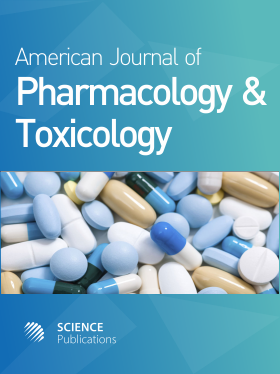In Vitro and In Vivo Anticancer Activity of Bacoside A from Whole Plant of Bacopa Monnieiri (Linn)
- 1 Rajiv Gandhi University of Health Sciences, United States
Abstract
Problem statement: Natural products have long been a fertile source of cure for cancer, which is projected to become the major cause of death in this century. Major classes of anticancer compounds include alkaloids, terpenoids, flavonoids and lignans. We have chosen terpenoids (bacosides) because terpenoids like taxol are currently being used in cancer chemotherapy. The anticancer activity of Bacoside A (containing Bacoside A3) isolated from the whole plant of plant Bacopa monnieiri (Linn.) was evaluated in in vitro and in vivo experimental models. Approach: The Bacoside A was isolated from ethyl acetate insoluble fraction (BM-2B) of chloroform: Methanol (2: 1) (BM-2) extract of B. monnieiri whole plant. The cytotoxicity (in vitro) of Bacoside A (BM2BF8-BSD) was carried out by means of MTT assay using MCF-7 (Human breast cancer), HT-29 (Human colon adeno carcinoma) and A-498 (Human kidney carcinoma) cell lines. The in vivo anticancer activity of Bacoside A was evaluated against Ehrlich Ascites Carcinoma (EAC) tumor bearing mice. Results: The Bacoside A (31.38 %) rich fraction, coded BM-2B containing Bacoside A3 (8.09 %) was showing potent cytotoxicity. Oral administration of BM-2B to tumor bearing mice at the dose of 250 and 500 mg kg-1 body weight for 10 days, showed significant reduction in percent increase in body weight, tumor volume, packed cell volume, viable tumor cell count and increased non-viable cell count when compared to the untreated mice of the EAC control group. The restoration of hematological parameters towards normalcy was also observed. Conclusion: The results suggests that the Bacoside A (31.38 % Bacoside A containing 8.09 % Bacoside A3) rich fraction (BM-2B) exhibits significant anticancer activity in both in vitro and in vivo experimental models.
DOI: https://doi.org/10.3844/ajptsp.2011.11.19

- 8,046 Views
- 9,605 Downloads
- 20 Citations
Download
Keywords
- Ehrlich ascites carcinoma
- cytotoxicity assay
- percent increase
- experimental models
- viable tumor
- bearing mice
- control group
- insoluble fraction
- bacopa monnieiri
- tumor bearing mice
